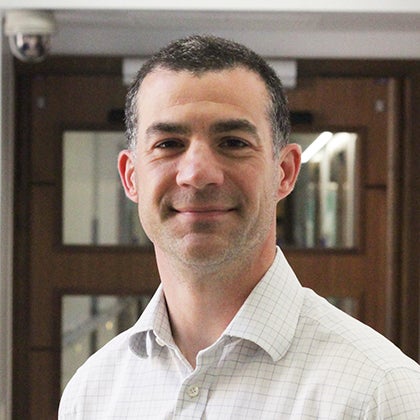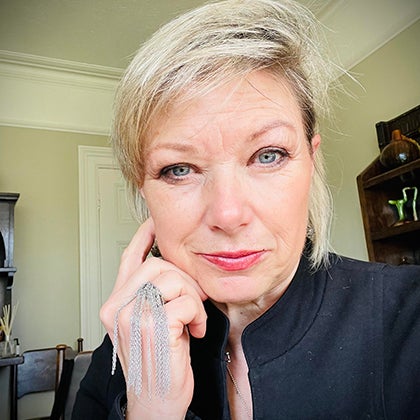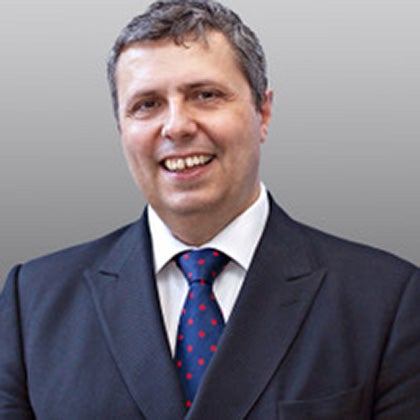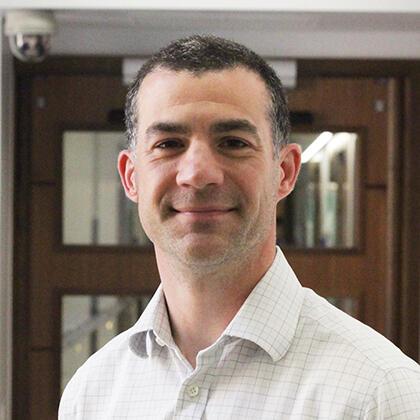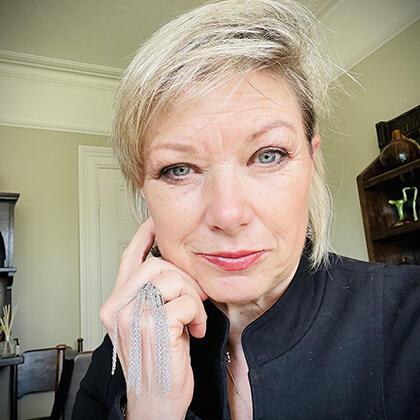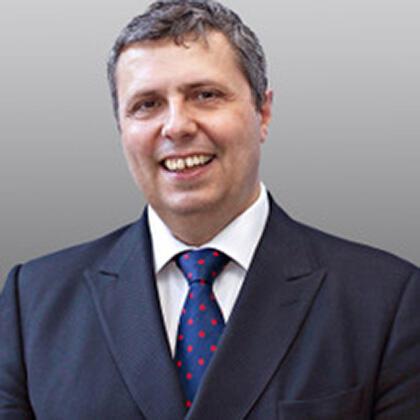Medical Experts in the Family Court: Where Two Worlds Collide
Share
- Details
- Text
- Audio
- Downloads
- Extra Reading
How does everyday medical practice get interpreted in the courtroom?
In cases of child protection, do everyday decisions made in a resource-limited NHS stand up to cross-examination? Does the duty of care in hospital also extend to collecting evidence, and are the obligations of the doctor looking after a child different to the obligations of the expert commenting on them in retrospect? How does this affect the number of medical personnel willing to come forwards to give expert evidence?
Download Text
Medical Experts in The Family Court: Where Two Worlds Collide
Professor Jo Delahunty KC & Professor Owen Arthurs
19th January 2023
Please note that the value of this lecture lies in the in-person live, unscripted discussion between Professor Delahunty and Arthurs assisted by Leslie Samuels KC as Chair. This note is provided to identify proposed discussion points and suggestions for further reading.
Issues addressed in the live lecture are-
- What type of cases need medical experts?
- Who can be an expert?
- Does being a medical expert differ from being a medical witness?
- The Expert v The Advocate in court
- Why we each do the job we do.
- Challenges for the future
Professors Delahunty KC and Arthurs will compare and contrast their long experience in the child protection field and, looking critically at recent developments, ask, are we sacrificing justice for the family on the altar of necessity – not because that’s in the best interests of the child but because the family court system can no longer service all the cases who come before it as it used to?
They will talk frankly about what drives them to do the jobs they do and how they approach their task in court when it comes to preparing for a court case and testing the evidence in it. They will explore the future direction of court child protection work and ask whether the system they work in is fit for purpose.
Introduction
Medical experts are used to assist the criminal and family courts to understand medical issues which arise in a child protection case. They are a rare and expensive resource. The court is under a duty to restrict expert evidence to that which in the opinion of the court is ‘necessary’ to assist it to resolve the proceedings. They are most usually a joint instruction by all the parties to the court. Unfavorable reports can’t be suppressed. The process of a Part 25 Expert instruction commits the parties and the expert to transparency and openness. Experts are expected to be impartial and rigorous in their approach to the case, to balance factors that support or militate against an opinion of inflicted injury. Experts are expected to make their opinion writing succinct, clear and balanced. They are expected to be willing to attend an expert meeting to discuss their view with other experts and to answer lawyers questions within that meeting and in court under cross examination.
This public and recorded lecture is the one of the first to be held where a child protection silk and accredited medical expert frankly discuss what they expect from one another in this court process, why so few medical professionals are willing to train to become experts in the family court and the impact on ‘justice’ in the family court system if we do without experts or seek to curtail the parties rights to challenge an adverse expert opinion that could determine a child’s future for its entire life.
The Context
A young child is injured or dies whilst in the care of a parent / carer.
- Non-Accidental Injury is suspected
- The child can’t say what has happen ed to it.
- The parent won’t or can’t say what has happened to their child.
- But a child’s body can tell a story without words.
- This is who it tells its story to:
- receiving medics at hospital
- police,
- social services
- experts
- lawyers, and, most importantly,
- the court
In court - experts and advocates reconstruct, as best they can, from competing perspectives what happened to cause injury to the child.
The Time Line
This typically comprises:
- The 999 call
- The ambulance
- The hospital receives the child.
- The parents account to the medics
- The medics imperative - assess to treat –
- The trial
- The child’s account - flesh, body, eyes, blood, bone, brain
- Call in the “Experts”
- The report
- The trial
- The judgment
The Duties
An expert in family proceedings has an overriding duty to the court that takes precedence over any obligation to the person from whom the expert has received instructions or by whom the expert is paid.
The principles which guide the family courts’ decision to instruct an expert is contained within PRACTICE DIRECTION 25B – THE DUTIES OF AN EXPERT, THE EXPERT'S REPORT AND ARRANGEMENTS FOR AN EXPERT TO ATTEND COURT
https://www.justice.gov.uk/courts/procedure-rules/family/practice_directions/practice-direction-25b-the-duties-of-an-expert,-the-experts-report-and-arrangements-for-an-expert-to-attend-court
See also Part 25, Practice Direction 25A, and Practice Direction 25C, Practice Direction 25D, Practice Direction 25E, and Practice Direction 25F.
The parties have to
- Agree the letter of instruction to the expert (key time line and neutral facts)
- Agree the questions to be answered by them.
- Agree what they should be sent.
- Nominate a lead lawyer to take responsibility for communications with the expert and not have single sided communications out with the knowledge and consent of the parties.
When the expert instructed has to comply with core duties:
Particular duties of the expert para 4.1of the practice Direction
(a) To assist the court in accordance with the overriding duty.
(aa) in children proceedings, to comply with the Standards for Expert Witnesses in Children Proceedings in the Family Court (set out in the Annexed Practice Direction).
(b) to provide advice to the court that conforms to the best practice of the expert's profession.
(c) to answer the questions about that which the expert is required to give an opinion upon
(d) to provide an opinion that is independent of the party or parties instructing the expert.
(e) to confine the opinion to matters material to the issues in the case and in relation only to the questions that are within the expert's expertise (skill and experience).
(f) where a question has been put which falls outside the expert's expertise, they must state this at the earliest opportunity and to volunteer an opinion as to whether another expert is required to bring expertise not possessed by those already involved or, in the rare case, as to whether a second opinion is required on a key issue and, if possible, what questions should be asked of the second expert;
(g) in expressing an opinion, to take into consideration all of the material facts including any relevant factors arising from ethnic, cultural, religious or linguistic contexts at the time the opinion is expressed.
(h) to inform those instructing the expert without delay of any change in the opinion and of the reason for the change.
A key principle that supports an instruction is transparency and clarity in relation to what the expert has seen /read to enable them to come to their decision and what communications they have with the parties and the court. They must not become ‘detective’ by making contact with the parties or any professionals / witnesses involved in the case and going off on their own trail. Any communications they have outside of their terms of reference must be agreed and recorded.
The Skills: What Is the Difference Between a Medical Witness and An Expert Medical Witness?
Medical Witness
Being a medical expert is quite different from practising medicine. The amount of information you have available, your obligations, and the purpose are quite different, and it is crucially important that the expert is able to identity, recognise and adhere to these distinctions throughout the court process, sitting themselves as experts separate to their typical day to day practice. It takes many years to acquire the skills and training and professional accreditation to be called an expert. The demands upon a treating medic and an instructed medical expert are not the same nor are the expectations of them in court.
So how is the practice of a treating medic and medical expert different and where do the discrepancies arise?
- Treating medics form opinions and make decisions when medical intervention is the clinical imperative for the child.
- Hospital staff are faced (literally) with the consequences of harm.
- objectivity is a hard taskmaster.
- ‘Corridor’ discussions (unrecorded) inevitably take place, information needs to be passed on at speed and in often not ideal circumstances to deliver effective lifesaving treatment.
- Key medics are required to have strategy meetings with the police, social services, community health care as child protection protocols are initiated by the hospitals if there is an emerging picture of concern re NAI ( non-accidental injury)
- Opinions are formed as evidence is emerging and facts are unclear.
- They do not have the benefit of hindsight nor the whole picture.
- They assess and treat on the basis that any diagnosis /opinion can be change as more information becomes known.
- The child is a patient, not a case. The duty to the patient is ongoing.
- Treating medics work as part of a hospital multi-disciplinary team. Being an expert is lonely.
- Many medics do not want to have to enter the court room arena. It is something that would make them anxious and distract them from their patients and clinical duties.
- An expert has made the choice to engage with the extra responsibilities involved.
Medical witnesses may be doctors, nurses, clinicians, specialist professionals such as paediatricians, radiologist, ophthalmologists, neuro radiologists etc. They are called to court to provide details about what happened in a case. The role of a professional witness is to explain to the court what information they had to work with and what they did in relation to treatment within the constraints of time and information available to them. They make decision on cause and treatment in real time- not with the benefit of hindsight.
Medical Expert
A part 25 expert has made the professional and financial choice to take the responsibility on to provide an option to the court on medical issues that might determine the future of a child for its lifetime. They are prepared to put those opinions on paper and to be tested by barristers in court though cross examination. That is not for the faint hearted.
What Does It Take to Become an Expert?
See Part 25 of the Family Procedure Rules 2010 https://www.justice.gov.uk/courts/procedure-rules/family/parts/part_25
- The expert has been active in the area of work or practice, has sufficient experience of the issues relevant to the case, and is familiar with the breadth of current practice or opinion.
- The expert has working knowledge of the social, developmental, cultural norms and accepted legal principles applicable to the case presented at initial enquiry and has the cultural competence skills to deal with the circumstances of the case.
- The expert is up to date with Continuing Professional Development appropriate to their discipline and expertise and is in continued engagement with accepted supervisory mechanisms relevant to their practice.
- If the expert’s current professional practice is regulated by a UK statutory body, they are in possession of a current license to practice or equivalent and carries professional indemnity insurance.
- If the expert’s current professional practice is outside the UK, they can demonstrate that they are compliant with the FJC ‘Guidelines for the instruction of medical experts from overseas in family cases’.
- The expert has undertaken appropriate training, updating or quality assurance activity – including actively seeking feedback from cases in which they have provided evidence- relevant to the role of expert in the family courts in England and Wales within the last year.
- The expert has a working knowledge of, and complies with, the requirements of Practice Directions relevant to providing reports for and giving evidence to the family courts in England and Wales.
- This includes compliance with the requirement to identify where their opinion on the instant case lies in relation to other accepted mainstream views and the overall spectrum of opinion in the UK.
In practical terms lawyers look to the expert to give an opinion on mechanism and timing of an injury. Experts have the privilege, (and burden) of undertaking (unlike a treating medic) a retrospective analysis of causation/timing with all relevant and available information given to them incusing parent’s statements, interviews to the police, past medical history... They compare what they read in the individual case with their clinical experience and compare with literature reviews for outlier explanations.
They are not governed by clinical directives, but by the court & expert guidance
They are not ‘maverick’ professionals. Experts have a duty to identify if their views fall outside the “mainstream” of clinical opinion and research. Clinical practice varies from institution to institution & practitioner to practitioner. An expert will contextualise the “normal” practice expected, and what happened in this case.
What Happens in Court - The Lawyer V Expert?
Experts are asked to give their opinion to the court, to undergo challenge to it and for the court to assess what they have offered up in the context of all the evidence the court hears. However influential the expert opinion might be ‘the expert advises, the court decides’.
The court, as the expert, must ‘never forget that today’s medical certainty may be discarded by the next generation of experts or that scientific research may throw light into corners that are presently dark’ ( ( R v Cannings [2004]1WLR 2607.
We discuss the ramifications of this in this lecture.
We explore what the medical profession fears; what the lawyer fears.
How does court room experience match with those fears.
We ask if our job satisfaction is worth the stress.
The Overburdened Family Justice System: What Has to Give?
In the lecture we ask each other is we are at risk of downgrading standards in light of the pressure on the court service, the dwindling pool of experts and the unacceptable delays caused to decision making for the child by the expert shortage.
Consider this; A Compare and contrast exercise:
Devon County Council v EB & Ors (Minor) [2013] EWHC 968 (FAM) per Baker J (as then was):
‘‘A court hearing an application for care orders based on cases of suspected physical injury.
Must follow the evidence and pursue the enquiry in whatever detail and for however long is necessary to arrive at the truth’.
Why? Because
‘With the states abandonment of the right to impose capital sentences, orders of the kind which family judges are typically invited to make in public law proceedings are amongst the most drastic that any judge in any jurisdiction is ever empowered to make.
When a judge makes placement orders or an adoption order in relation to a 20-year-old mother’s baby, the mother will have to live with the consequences of that decision for what may be upwards of 60 or even 70 years and the baby for upwards of 80 or even 90 years’.
Re J (A Child) [2013] EWHC 2894 (FAM) Per Munby J (as then)
That was 10 years ago, where are we now? Where are the experts? How long can we wait for them to step in and advise the judge?
Re G (Child Post-Morten Reports: Delays) [2022] EWFC 55 Sir Andrew McFarlane (P) – (March22)
Context- The proceedings related to the sibling of a 4-month-old baby who died in suspicious circumstances with serious suspected NAI injuries in October 2021. The child was 18 m old when removed from the parents care after his sibling’s unexplained death 6 months beforehand with a further delay of 8-11 months before receipt.
Consequence--a hearing in the family court would not be listed until 2023, by which time he would be 3 ½.
Why? – Whilst the post-mortem examination by a lead forensic pathologist is a quick turnaround (undertaken within days of death) material collected during the post-mortem is then sent off for specialist analysis by other experts .The preparation of the overall post-mortem report by the pathologist cannot be completed until the reports of each of the specialists has been received.
In this case - the dead baby had bleeding to the brain, in the eyes, a healing rib fracture and injury in the mouth, meaning - specialist reports were required from:
- a consultant neuropathologist.
- a consultant paediatric pathologist (in particular with respect to the eyes).
- A consultant osteoarticular pathologist.
Osteoarticular Pathology Experts? Wherefore Aren’t Thou?
There is ONE expert in the UK who is prepared to take on this work.
He is Prof Mangham who is an NHS consultant and a professor at Manchester University in histopathology. His timescale dictates the date for completion of the overall post-mortem report. He undertakes over 100 cases a year. His report turnaround time is 9-12 months.
He has no one to delegate to. This work is voluntary.
The Home Office were asked to account for this situation at court. They could not require practitioners to take on the expert role. They offered grounds for ‘hope’ that at least two bone analysist might step forward and an expert in the USA may be available to take on some work in the interim to relieve the backlog of cases allocated to Prof Mangham.
This was hardly a breakthrough. As the President said:
‘I am clear, as Head of Family Justice, it is no longer tenable for the Family Court simply to put up with the impact of this problem. …
I wish to be plain that it is no longer acceptable for the Family Court simply, and passively, to accept that a post-mortem report will take a year and that the Family proceedings must therefore be put on hold.
It is no business of the court to engage in policy matters, but it is to be noted that the option of establishing a national service is not currently being taken forward by government. In September 2020 the Chair of the Pathology Delivery Board wrote to Lady Justice Thirlwall, as Senior Presiding Judge, with the aim of alerting the criminal courts to these extended timescales. Since then, there has been no improvement and the unacceptable situation that currently exists seems likely to remain. It is a matter for the police and the coronial system, who are the primary commissioners of this work, what they may choose to do to improve matters.
It is a situation which is outside the control of the Family Court, yet this court, and the wider child protection system, are currently forced to put up with the consequences of a regime which, from the perspective of meeting the needs of vulnerable children within the timeframe set by Parliament, is wholly unfit for purpose.’
So, what can we do without in this cash strapped expert denuded context? Do we need experts? Do we need fact finding?
When Is It Necessary for The Family Court to Engage in Fact-Finding with Respect to Serious Allegations? The Overriding Objective
Family Procedure Rules 2010, r 1:
“1.1
-
- These rules are a new procedural code with the overriding objective of enabling the court to deal with cases justly, having regard to any welfare issues involved.
(2) Dealing with a case justly includes, so far as is practicable –
(a) ensuring that it is dealt with expeditiously and fairly.
(b) dealing with the case in ways which are proportionate to the nature,
importance and complexity of the issues.
(c) ensuring that the parties are on an equal footing.
(d) saving expense; and
(e) allotting to it an appropriate share of the court's resources,
while taking into account the need to allot resources to other cases.”
What factors does ‘necessity ‘embrace?
See Oxfordshire County Council v DP, RS, BS (By the Children’s Guardian) [2005] EWHC 1593 (FAM), (McFarlane J as then)
- The interests of the child (which are relevant but not paramount).
- The time that the investigation will take.
- The likely cost to public funds.
- The evidential result.
- The necessity or otherwise of the investigation.
- The relevance of the potential result of the investigation to the
future care plans for the child. - The impact of any fact-finding process upon the other parties.
- The prospects of a fair trial on the issue.
- The justice of the case.”
Oxfordshire was approved in Court of Appeal in Re H-D-H and C (Children: Fact-Finding) [2021] EWCA Civ 1192; [2022] 1 FLR 454, per Peter Jackson LJ
The courts are to consider ‘flexibility’ in light of the ‘overriding objective’ to do justice ‘efficiently’ in the individual case as follows:
Consider:
“(i) the welfare of the child, the significance to the individual child of knowing the truth can be considered, as can the effect on the child’s welfare of an allegation being investigated or not.
(ii) The likely cost to public funds can extend to the expenditure of court resources and their diversion from other cases.
(iii) The time that the investigation will take allows the court to take account of the nature of the evidence. E.g.) an incident recorded electronically may be swifter to prove than one that relies on contested witness evidence or circumstantial argument.
(iv) The evidential result may relate not only to the case before the court but also to other existing or likely future cases in which a finding one way or the other is likely to be of importance. The public interest in the identification of perpetrators of child abuse can also be considered.
(v) The relevance of the potential result of the investigation to the future care plans for the child should be seen in the light of the s. 31(3B) obligation on the court to consider the impact of harm on the child and the way in which his or her resulting needs are to be met.
(vi) The impact of any fact finding process upon the other parties can also take account ….resources and professional time that might be devoted to other children.
(vii) The prospects of a fair trial may also encompass the advantages of a trial now over a trial at a possibly distant and unpredictable future date.
(viii) The justice of the case gives the court the opportunity to stand back and ensure that all matters relevant to the overriding objective have been taken into account.
One such matter is whether the contested allegation may be investigated within criminal proceedings. Another is the extent of any gulf between the factual basis for the court’s decision with or without a fact-finding hearing. The level of seriousness of the disputed allegation may inform this assessment.
“The court must ask itself whether its process will do justice to the reality of the case.”
So, what is the criteria to decide if fact-finding is required? This was considered in K v K [2022] EWCA Civ 468 Court of Appeal.
“The main things that the Court should consider in deciding whether to order a fact-finding hearing are:
- the nature of the allegations and the extent to which those allegations are likely to be relevant to the making of the child arrangements order,
- that the purpose of fact finding is to allow assessment of the risk to the child and the impact of any abuse on the child,
- whether fact-finding is necessary or whether other evidence suffices, and
- whether fact-finding is proportionate.”
Para 66 per Master Rolls
How far are the courts now prepared to go in dispensing with the need for a fact-finding hearing where experts and medical professionals alike say a child has been the victim of suspected NAI?
Consider Derbyshire CC v AA, BA and X (a child) & University Hospital Derby and Burton NHS Foundation Trust ([2022] EWHC 3404(FAM), Lieven J, 5.12.2022
Issue – whether to hold a 9-day fact find hearing into alleged NAI- rib fractures to a baby, discovered on routine examination aged 2 months, child had remained in family care, now aged 18 m. Parents denied abuse- suggested birth or hospital related. Treating paediatrician considered fractures NAI. Part 25 Experts considered NAI most likely.
Verses that there had been no ‘flags’ for concern in the 16 months of proceedings when the parent and their care of the child had been under intense scrutiny. The court applied its mind the ‘broad canvass’ as per Re BR (Proof of Facts) [2015] EWFC 41. Lieven J applied supra ( private law case) to public law welfare issues .Lieven J said: the fact threshold alleged does not change ‘the Court’s approach that a finding of fact hearing should not be undertaken unless it is going to make a material difference to the welfare outcome and the orders which may be made.
Lieven J said:
- Understanding the facts and circumstances of an alleged non-accidental injury is often critical to the determination of future risk. But here I do not find that is necessary.
- There is no evidence here to support any finding of deliberately inflicted injury.
- The overwhelming probability is that if the court did find a non-accidental injury, it would be a single act of significantly inappropriate handling of a very young baby, rather than any deliberate act or any course of conduct.
- It is highly unlikely that the parents would accept any findings even if I made them, so even if a fact-finding hearing were held, there is a strong possibility that in practical terms we would be no further forward.
- Given the oversight of the family so far, it is extremely unlikely that (even if all the facts were found) any Court would remove X from the care of his parents. That is not a realistic prospect given all that has happened over the last 18 months.
- I also have to take into account the proportionality of a 9-day fact-finding hearing. There are the costs of the lawyers, NHS resources, CAFCASS and social work resources in play.
Lieven J decided:
‘It is sometimes argued in these circumstances that the parties and child need to know “the truth” of what has happened…. In this case the benefit of finding out what happened is largely illusory. X is too young to know (or care) what happened. I think it highly unlikely that the parents would accept findings even if I made them. I cannot see any justification for a 9-day finding of fact hearing so that at some point in the future X can know “the truth”.
She dispensed with the fact-finding hearing and invited the LA to withdraw.
The PLO Process – Reinvigorated as From 16.1.23
https://www.judiciary.uk/guidance-and-resources/a-view-from-the-presidents-chambers-november-2022/
The context; as The President sets out in this “view’ court delays and failing children and families. 10 years ago, when the Norgrove ‘Family Justice Review’ was undertaken, the average time taken for care proceedings before a judge was 61 weeks. The Norgrove Review concluded that “delay has become habitual” and recommended that there should be a statutory time limit of 26 weeks for the completion of care proceedings. That recommendation was accepted and, in April 2014, s 14 of the Children and Families Act 2014 [CFA 2014] came into force, thereby introducing s 32(1)(a) into the Children Act 1989 [CA 1989] requiring the court to draw up a timetable with a view to disposing of an application without delay and, in any event, within 26 weeks.
By 2016 the national average time taken for care cases got down to 27 weeks, with 62% of the 24,150 concluded cases finishing within 26 weeks.
Yet the court has failure to hold on to the successes of 2015/6. The first was an unexpected and sustained 25% rise in the volume of s 31 applications, and the second was, of course, Covid 19. It is not necessary to spell out here the impact of these two major challenges. The result of their combined assault on our ability to undertake public law work in the Family Court has been a substantial increase in the backlog of unfinished cases with a consequent rise in the average length of a care case to 44.4 weeks in 2021, with only 23% of the 22,600 concluded cases doing so within 26 weeks.
The President views this situation with clear alarm. As he says “It is now some six or seven years since the courts have been able to meet the 26-week deadline and there is no current expectation of doing so. Because there are so many more cases in the system, it is harder to find an expert, when one is needed, who can meet a tight timetable. Social work, CAFCASS and CAFCASS Cymru resources are over-stretched because they have more open cases so that, despite best efforts, normal timetables cannot be met. Courts are not infrequently required to vacate listing dates at short notice because there is no judge available for the hearing. I could go on and add many more examples of what will be the lived experience of everyone involved in these cases. The overall result of all this is that it has, despite the hope of us all to the contrary, become accepted that cases will meet problems of this nature and will experience delay compounded by delay.
He concludes.
‘It is now clear to me that there is a need for a radical resetting of the culture within the Family Court so that the system reconnects with the strictures of the PLO and, once again, aims to meet the statutory requirement of completing each public law case within 26 weeks.
And so- as from 16.1.23 –we are ‘Back to Basics’ –this means.
- 26-week case guillotine/drive
- 3 hearings for each case
- Case management hearing- day 12-18 (no ‘urgent’ hearings)
- Interim resolution hearing
- Final hearing –The court is not required to consider any aspect of the care plan other than the permanence provisions.
- Experts only instructed where ‘necessary to assist the court to resolve the proceedings justly’, rather than where simply desirable or helpful.
Where Does That Leave Us?
Q- “Can we confidently say that ‘justice’ will continue to be the driver in this overstretched Family Justice System…………….?’
Professor Jo Delahunty will say,
“The children and families at the heart of these cases deserve more than the poverty stricken, over-burdened family court system can offer them.”
“Those working in the child protection system, lawyers, experts, judges, the court staff, do so because they believe it is vital work. But many of us are running out of energy and faith. With the unrelenting pressure on scarce court time, a dearth of experts who can turn reports around at a child’s pace , and the drive to cut cases down to get more through the system more quickly to keep up with the tsunami of work , we run the risk of losing the ‘justice’ in the family justice system. The experts we use play a vital part in securing the best evidence to decide a child’s fate. We need more of them. These cases matter. They must be treated with the seriousness the outcome warrants. When the potential outcome of a budget driven system is that you might lose your child, be permanently severed from them, the children they might have, that cost saving is paid by the who are least able to make their case to be heard.”
This will be an unscripted discussion between two child protection specialists who are passionate about child welfare and due process. Listen to them live or afterwards on the Gresham stream.
© Professor Delahunty & Arthurs 2023
This event was on Thu, 19 Jan 2023
Support Gresham
Gresham College has offered an outstanding education to the public free of charge for over 400 years. Today, Gresham College plays an important role in fostering a love of learning and a greater understanding of ourselves and the world around us. Your donation will help to widen our reach and to broaden our audience, allowing more people to benefit from a high-quality education from some of the brightest minds.


 Login
Login
